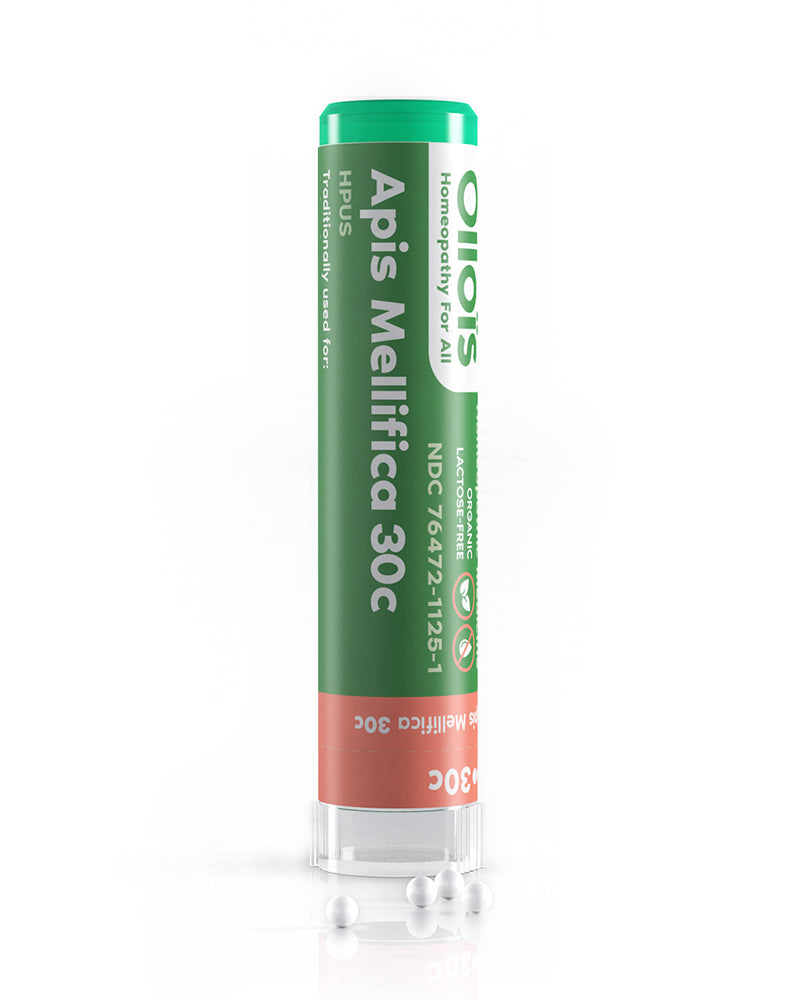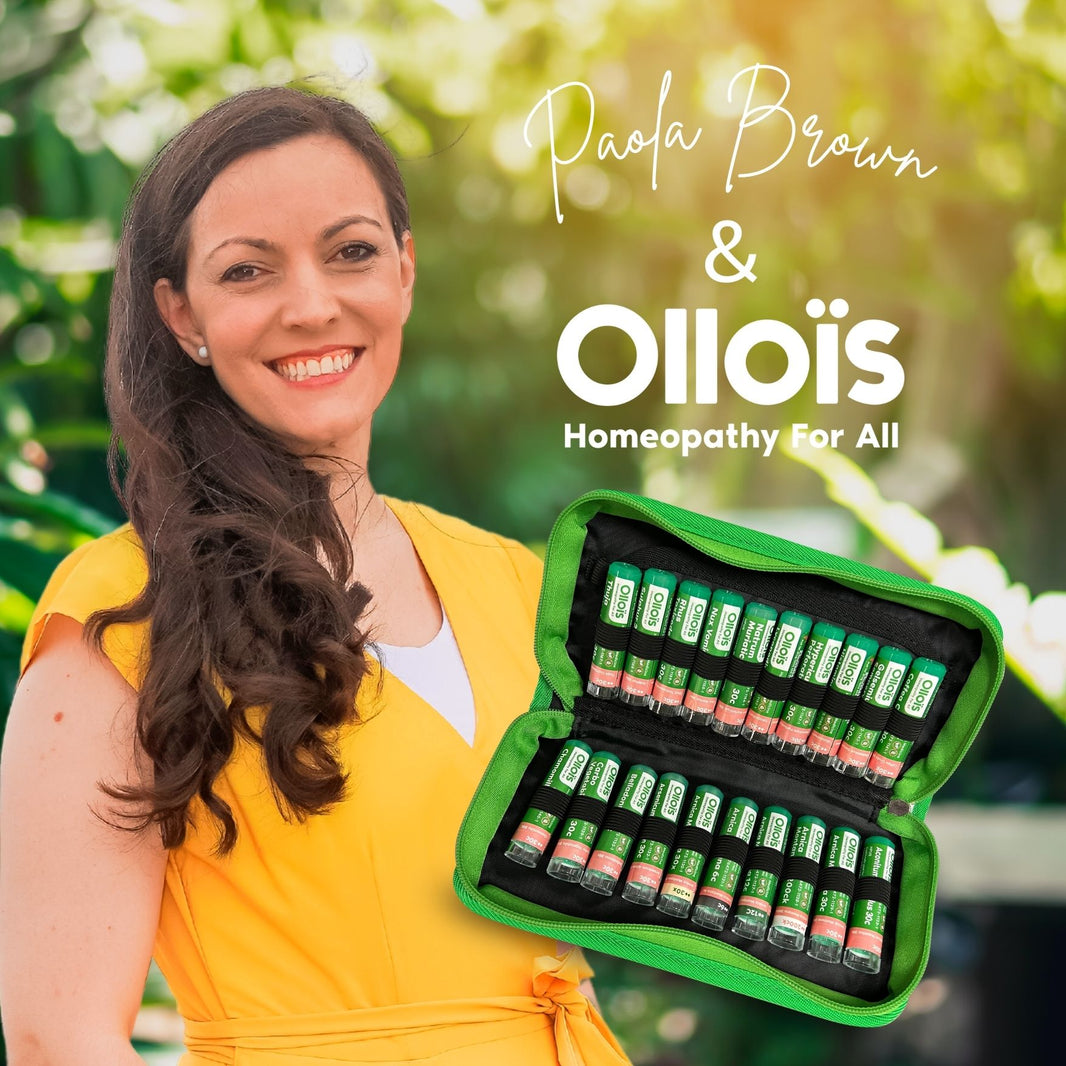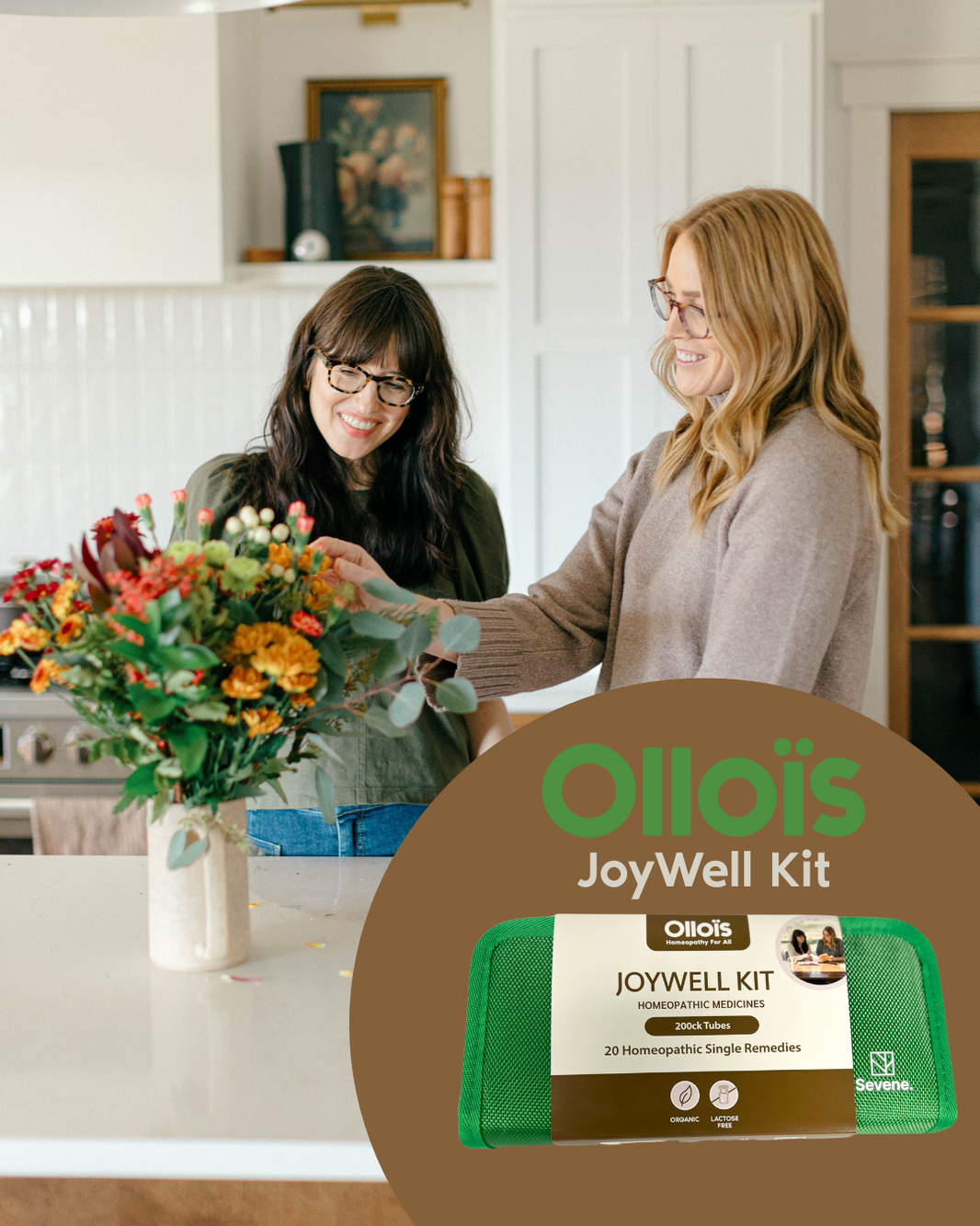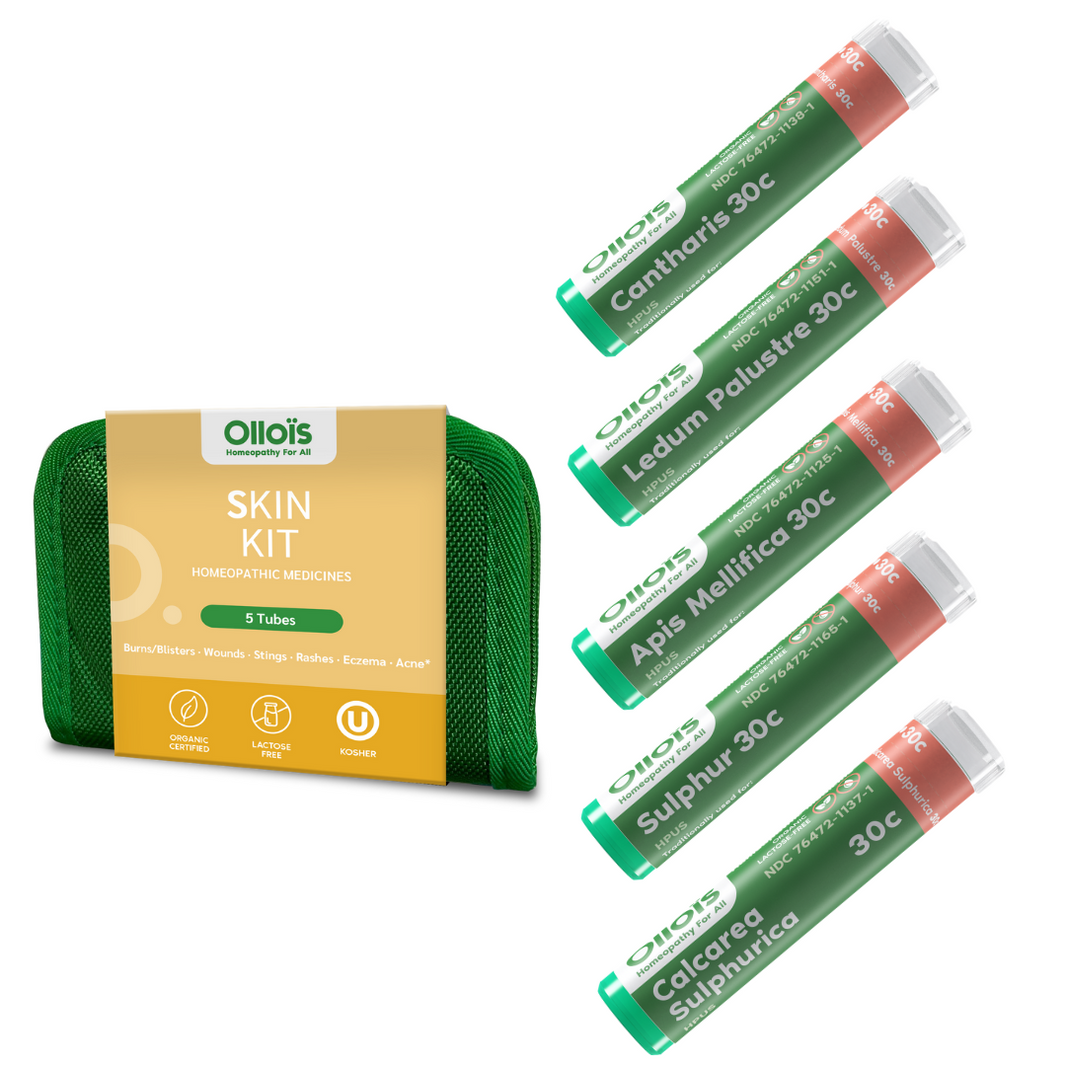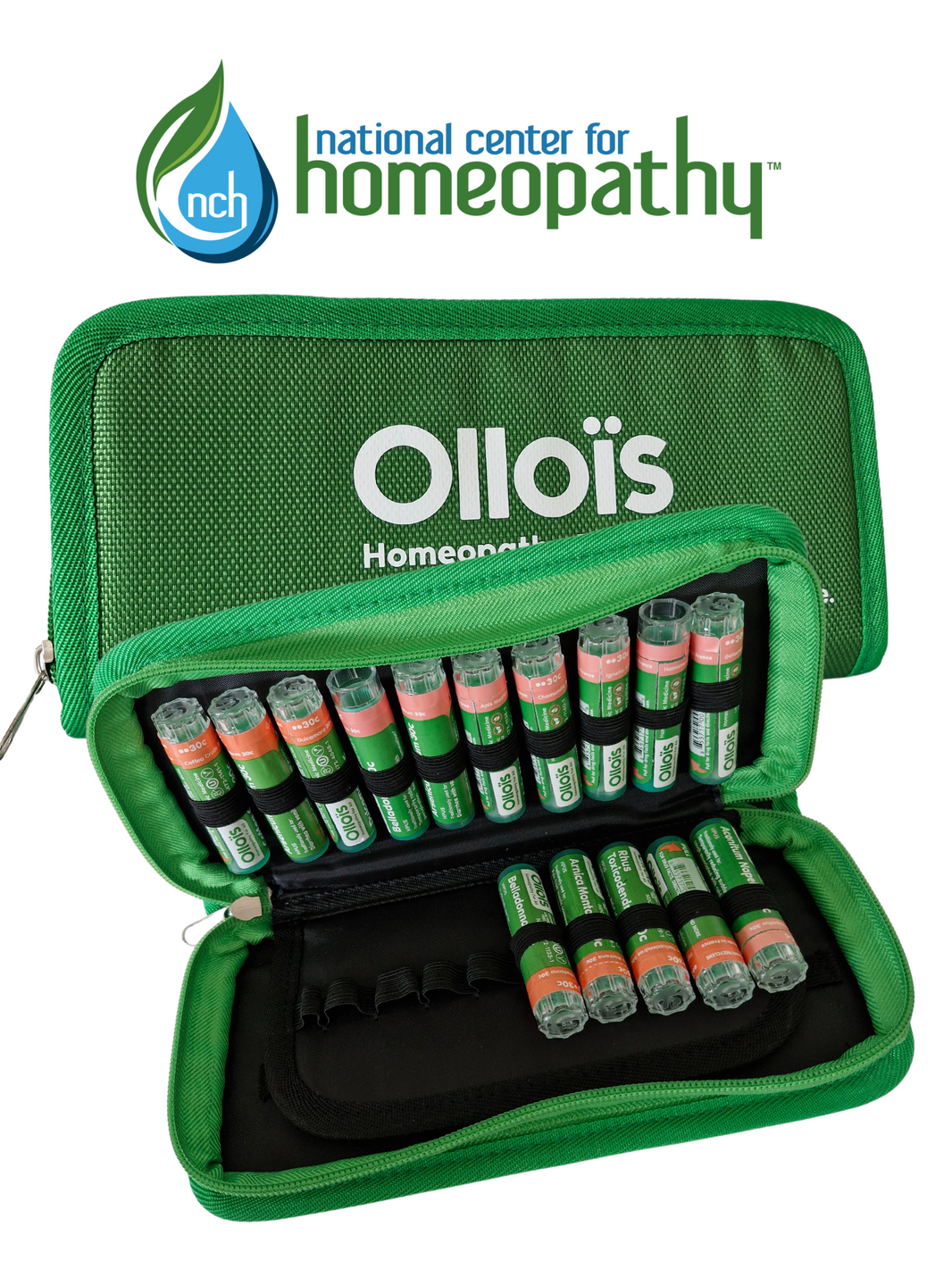Collection: Bee Stings
Apis Mellifica
Paola Brown & Olloïs: Evie Kit
JoyWell Kit
Homeopathic Skin Kit
NCH First Aid Kit
The warmer months give us a chance to spend more time outside. Bike rides, trips to the local park, sitting on a patio, or working away in your backyard garden are just a few of the activities we all enjoy in the nice weather. Being bothered by bees, especially if you’re enjoying a sugary beverage or popsicle, goes with the territory. At certain points of the season, various species of bees will be more active, increasing the risk of being stung. Certain insects may also be more aggressive than others; such as carnivorous wasps. For the most part, any bee will only sting in defence of a perceived threat. Regardless of the reason, the pain of a sting remains.
The pain of a bee sting is usually immediate. Whether you’re aware of the bee’s presence or not, the sharp, intense, burning pain will have you recoiling instantly. It will appear as a red welt that begins developing moments after the sting and may continue to swell slightly around the area for a little while after. The swelling and pain of the sting usually dissipates within a few hours or so after the sting, but the area may be tender to the touch for some time after.
To get some much needed relief, there is homeopathy for bee stings. You can use Ledum-Palustre-30c - a 100%-natural remedy available from Olloïs. This treatment can minimize the pain of the sting while helping to reduce the swelling. It’s also shown to prevent infection from occurring at the site.
Discover more organic, lactose-free homeopathic remedies that can help relieve pain and discomfort by browsing our product page.
FAQ
What is Homeopathy?
Homeopathy is a medical practice based upon the body's ability to heal itself, and the principle that "like cures like" or the Law of Similars: that is, if a natural substance causes a symptom in a healthy person, a very small amount of the same substance may help relieve symptoms of the illness. Homeopathic medicines enhance the body's normal healing and self-regulatory process.
How do I take homeopathic medicines?
Homeopathic medicated pellets contain only a little of an active ingredient for treatment of disease. These are known as highly diluted or "potentiated" substances. Homeopathic medicines should be placed under the tongue of adults and children or in the cheek of an infant, where they will dissolve. It is preferable to take homeopathic medicines apart from meals. The dosage is not related to the weight and age of the patient. In general, dissolve 5 pellets 3 times a day until symptoms are relieved or as directed by your health Care Professional.
Is there evidence that Homeopathy works?
There are literally hundreds of high quality, published basic sciences, pre-clinical and clinical studies showing that homeopathy works. These studies have been published in respected journals like Lancet, Pediatrics, Rheumatology, and Annals of Internal Medicine, among others.
A great source of high quality research in homeopathy at an
international level is the Homeopathic Research Institute in the U.K. headed by physicist, Dr Alexander Tournier. Click below to learn more about their studies and rigorous methods.
Is Homeopathy regulated?
The U.S. Congress passed a law in 1938 declaring that homeopathic remedies are to be regulated by the U.S. Food and Drug Administration (FDA) in the same manner as nonprescription, over the counter (OTC) drugs.
Is Homeopathy new?
The Law of Similars has been known since at least the time of Hippocrates (ca. 400 B.C.), but it was doctor and chemist Samuel Hahnemann who fully stated the ideas of homeopathy in the early 1800's in Germany. He discovered the truth of the Law of Similars by testing small doses of medicine on himself. Although there is wider acceptance of homeopathy in countries such as France, Germany, Mexico, Argentina, India and Great Britain, we have seen a greater interest in homeopathic medicine in the USA recently. In fact, the family doctor to England's Queen Elizabeth is a homeopathic physician.
What is the difference between the dilutions?
30C dilutions are traditionally used in Homeopathy to address general and chronic symptoms.
200CK dilutions are usually recommended by healthcare practitioners when there is an emotional component associated with physical symptoms.
Which base ingredient do you use for your pellets?
Our pellets are made from Organic Beet Sucrose exclusively grown in Europe. We then impregnate the pellets with the homeopathic dilution of the remedy.
How to open our tubes?
Are Olloïs remedies HAS/FSA eligible?
Yes, Olloïs homeopathic remedies are eligible.

 Respiratory
Respiratory
 Stress & Sleep
Stress & Sleep
